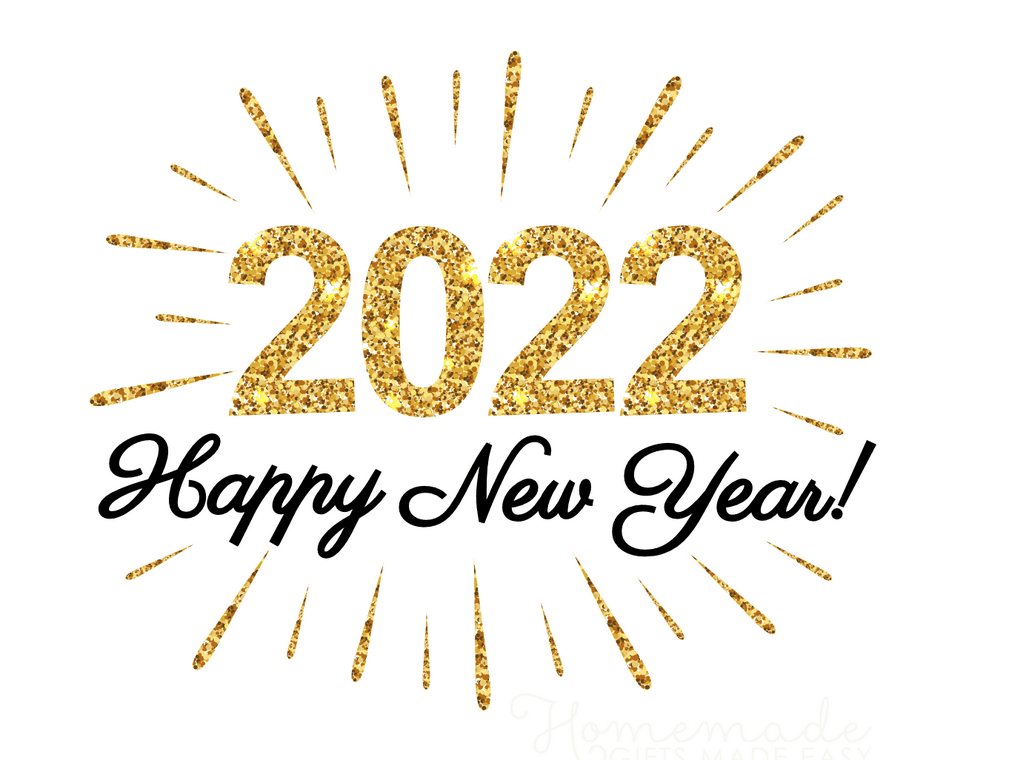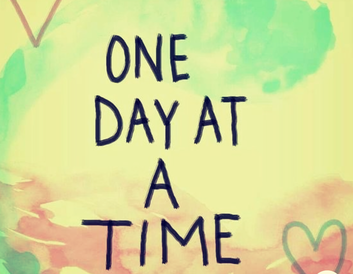|
The New Year traditionally and metaphorically symbolizes a new beginning and a fresh start. Starting the New Year with a renewed sense of hope and optimism can be motivating and energizing. CBC radio asked to interview me January 4th, 2022 about New Year's (NY's) Resolutions. This request got me thinking about how I personally set goals and how as a coach I help my clients realize their own goals. The essence of my work is helping people feel happier and more satisfied about their life. The achievement of goals is a key component of what makes people happier in their lives, personally and professionally. I don’t make New Year’s Resolutions. It turns out a lot of people don’t either. As I see it, resolutions at any time of the year are useful. But if you appreciate having a start date and use the time leading up to January 1st to strategize on how to succeed, I say GO FOR IT! Almost everyone I polled about NY's Resolutions through my Coach Minda FB page, via Linkedin and via email, replied that while they don’t specifically make NY Resolutions they do engage in setting goals throughout the year with plans to achieve them. While there is agreement that setting goals is good thing, the process and approach is highly individualized. Many of my clients tend to opt for smaller, on-going, incremental goals that they assess and tweak over time. Looking ahead into the New Year, they might focus on where they fell short – the missed opportunities and regrets and bad habits they would like to give up. Others focus on what went really well, the relationships, qualities, strengths and habits they want to cultivate and strengthen. A few referred to this process as:
What a few people said about NY's ResolutionsI set my resolutions, intentions, objectives or goals at different times in the year based on how things unfold in my life and what direction I wish to take next What is in a goal? 'New Year's Resolutions and goals in general tend to focus on lifestyle changes, e.g., eating healthier, losing weight, exercising more, quitting smoking, drinking less or saving money and work related goals such as improving time management skills, achieving life-work balance or procrastinating less. If you want to come up with a goal or two, ask yourself:
Breathing life into goalsA goal written on a piece of paper has no impact. These are forgettable, uninspiring and impossible to realize goals. For a goal to come alive, you must break your goal into chunks, made up of very specific tasks or actions (small steps are much more manageable), and you must make progress every day or at least every week, incrementally, because success comes one step at a time, not all at once in a rush. You need to make an effort to do something every day to support your goals and reinforce your focus by referring back to your goals. Ask yourself: Is this action in support of my goals? Breathe life into what you want to accomplish. The more you do that, the more you will find meaning, commitment and focus in your efforts. Be realistic. Envision the steps required to move forward. Some people are hard-core – they are well prepared, determined and committed to making a change or achieving some measurable result and have specific actions and steps to take within a pre-determined time frame. Hard core means:
Taking the small steps that add up to something you want to achieve requires motivation, discipline and vision to succeed. You need a mindset to want things to be different and a readiness to change. Goal-oriented people who are focused on accomplishment and achievement have varying degrees of commitment, motivation, engagement and stick to- it-ness. Some goals are harder to reach. Some obstacles are harder to overcome. Discipline and motivation ebbs and flows. The drive to succeed can change. Focus wanes. Making headway on our goals requires that we keep them front and centre and do something daily/weekly to make progress. It is too easy otherwise to forget what we are even trying to achieve. Support Ultimately, we achieve our own goals on our own. We also benefit from support along the way.
Of course, too, a lot of support can be gained from self-study: reading, listening to podcasts or speaking to others who have been successful in similar areas of interest. There is a puzzling dynamic at work for some people who:
Don’t give up. Seek professional support or a good friend you can buddy up with. As a coach, I wear a few different hats with respect to goal setting:
Changing behavior is not easyChanging behavior is not easy, at all. It took me weeks to get into a habit of drinking water and a few summers to build up the confidence, stamina and endurance to bike up to the summit of Mount Royal in Montreal.
As a way to build up energy towards making goals, start by reading up on the subject of interest (exercise, diet, finances, procrastination, you name it), reflect on the benefits, and consider the long-term consequences of not making a change. Think hard about WHY you want to make this change or WHY you want to accomplish a particular goal. Talk to people you admire and have already achieved what you want. Set realistic goals You might want to lose 15 or 50 pounds, but the key is translating that into a series of smaller and highly doable goals. For example, start with any of the ideas below and gradually add others:
Change via the tweak
Recognize when you are slipping back into old ways or not making any progress
I wish you a New Year filled with health, love, joy, fun and success in all your endeavours. Coach Minda
6 Comments
We hear everywhere how COVID19 has had a massive impact on people’s mental health. There are long waiting lists to see therapists, anxiety and depression prescriptions have significantly increased and survey data show there is a surge in people experiencing depression, loneliness, isolation, stress and anxiety. Not to mention economic devastation and job anxiety. My heart goes out to young and old, and especially to those who because of their circumstances are particularly vulnerable.
I am one of the more fortunate people. My challenges are limited mostly to inconveniences, namely missing social and family interactions. I too am tired of the same old, day in and day out. I haven’t seen my out- of -province daughter for over a year. I am more afraid of potential complications of COVID19 than I am from dying. Unfortunately, the news, social media platforms and channels and data leaves out the people who are thriving or coping. And this brings me me to the dead man's float. The dead man's float is a survival swimming technique I was taught as a young camper in the open waters of Lake of the Woods, (Kenora, Ontario). It was drilled into me that if I should ever be stranded in a lake, river or ocean, the dead man’s float will keep me alive until rescued. I whole-heartedly believed in this survival strategy and to this day, practice it every summer when I go into a lake. The technique is designed to quiet and calm your nervous system so much so that you can conserve your strength for hours, while waiting to be rescued. Those of you who are not familiar with this float, you are taught to hang in a prone floating position, face down, arms stretched forward and legs dangling down. You hang for as long as you can, taking on the limpness of a ‘dead-man’. When you need to breathe, you lift your head and take a breath while you simultaneously do a simple breaststroke. Then, you hang your head again. The float needs to be done with minimal exertion. In calm or rough waters, you float it out somewhat like a jellyfish. We can all adopt this technique to get through the coming months. We will be rescued – and in the meantime, we can practice being calm, conserving our energy and increasing our stamina and endurance in order to survive in unsettled waters. Floatingly yours, Coach Minda I am a certified professional coach and support individuals and organizations in professional and personal matters. It started with making homemade granola. And freezing it. Then, I tried for the first time to make cabbage rolls in honor of my late mother. She made them for holiday dinners. What followed, was homemade sauerkraut made from leftover cabbage.
Against the backdrop of these DIY projects (which I never do), I watched a documentary about Canadians living off the grid – without public utilities (water/electricity), at a distance from neighbours, and having to figure out everything on their own. They are 24/7 do-it yourselfers. These people are ingenious and creative, with homes running on renewable energy. They produce most of their own food. They carefully manage and monitor their consumption of essentials like fresh water. Days center on solving problems. And they do all this sustainability, in harmony with the environment, while wasting little. While I am not about to go off the grid, I appreciate their hard work and commitment to be resourceful, happy with less, and self-sufficient. It struck me that, with this locked-down socially-distanced covid-lifestyle, we are metaphorically living off the grid. Like the self-reliant people in the film, we covid homesteaders have to solve new work and life problems constantly. Beyond Netflix, we have to create our own amusements. We need to find outlets for our creative energies. Find meaning and fulfillment without depending on our friends and family (who live in other households). While living off the grid isn’t for me, putting in the daily effort to ward off negativity, being resilient and resourceful and enjoying a more frugal Covid lifestyle, feels good to me. Wishing for brighter days ahead, peace within and extending to all. Happy Holidays Coach Minda Dear folks,
This global pandemic has created massive upheaval. Surges in poverty, job losses and domestic abuse. Heartbreaking stories of sickness, isolation and loneliness. And I am scratching the surface. Since late March, we have been learning to live one day at a time. We don’t have much of a choice since the future seems to have shrunk to about 3 days ahead - about the length of time to wait for your COVID results. We are practicing being present to the unfolding of each day. This is good news. This also levels the playing field - no one has the advantage of being able to plan, go out or have a good time. It should be a great comfort that everyone is stuck at home with no plans and no clear future. Misery loves company, even if you have none. In 2021, not too much I expect will change except that it will be colder outside and winter equipment (skates, skis, and snowshoes) and indoor equipment (weights and workout machines) will be sold out. I wish you and your families good health, fresh perspectives, healthy ways to deal with stress and ways to make your life meaningful to you. In times of nowhere to go and no one to see, enjoy the simplicity of the present. Desperate to hug someone, Coach Minda p.s I will be posting new promotions for 2021. |
My family, relationships, movement, nature, flexibility of mind, exploration of alternative perspectives & openness are central to my life.Archives
December 2021
|
Private and confidential
|
Connect with me
|







